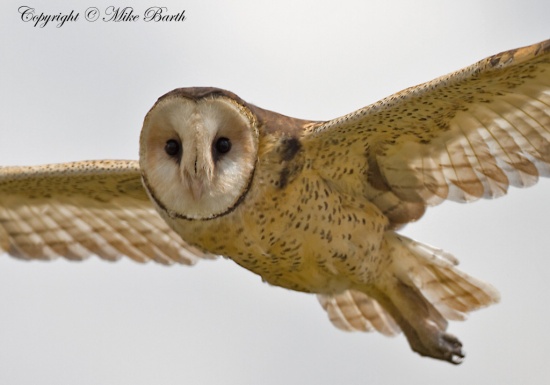(taxon, refs) |
|||
| (9 intermediate revisions by 6 users not shown) | |||
| Line 1: | Line 1: | ||
| + | [[Image:IMG 03202.jpg|thumb|550px|right|Photo by {{user|barty63|Mike Barth}}<br />Johannesburg, [[South Africa]], February 2011]] | ||
;[[:Category:Tyto|Tyto]] capensis | ;[[:Category:Tyto|Tyto]] capensis | ||
| − | |||
==Identification== | ==Identification== | ||
| − | + | *Dark brown upperparts | |
| − | + | *Whitish below | |
| + | *Round face | ||
| + | ====Similar Species==== | ||
| + | [[Barn Owl]] | ||
==Distribution== | ==Distribution== | ||
| − | + | Widespread throughout sub Saharan [[Africa]]<br /> | |
| + | '''Western Africa''': [[Cameroon]], [[Central African Republic]], [[Gabon]], [[Congo]], [[Angola]]<br /> | ||
| + | '''Eastern Africa''': [[Ethiopia]], [[Kenya]], [[Uganda]], [[Rwanda]], [[Burundi]], [[Tanzania]], [[Zambia]], <br />[[Mozambique]]<br /> | ||
| + | '''Southern Africa''': [[Namibia]], [[Botswana]], [[Zimbabwe]], [[South Africa]], [[KwaZulu-Natal]], [[Lesotho]], [[eSwatini]] | ||
==Taxonomy== | ==Taxonomy== | ||
Until recently, the [[Eastern Grass Owl]] was considered to be part of the present species which at that time was known only as "Grass Owl". | Until recently, the [[Eastern Grass Owl]] was considered to be part of the present species which at that time was known only as "Grass Owl". | ||
| − | + | ====Subspecies==== | |
| − | + | Two subspecies are recognized<sup>[[#References|[1]]]</sup>. | |
| + | *''T. c. cameroonensis'' - highlands of [[Cameroon]] | ||
| + | *''T. c. capensis'' - [[Congo]] and northern [[Angola]] east to southern [[Uganda]] and western [[Kenya]], then south from the southeastern [[Democratic Republic of the Congo]] and western [[Tanzania]] to eastern [[South Africa]]. | ||
==Habitat== | ==Habitat== | ||
Wet grasslands. | Wet grasslands. | ||
==Behaviour== | ==Behaviour== | ||
| + | They are mainly nocturnal and emerge shortly after dusk. | ||
| + | ====Breeding==== | ||
It roosts and nests on the ground, forming tunnels in the grass. | It roosts and nests on the ground, forming tunnels in the grass. | ||
| − | + | ====Diet==== | |
| − | |||
| − | |||
The diet includes rodents, particularly Vlei Rats, but also birds, reptiles, frogs and insects. | The diet includes rodents, particularly Vlei Rats, but also birds, reptiles, frogs and insects. | ||
| − | + | ==References== | |
| + | #{{Ref-Clements6thAug21}}#Avibase | ||
| + | #Wikipedia | ||
| + | {{ref}} | ||
==External Links== | ==External Links== | ||
| − | |||
{{GSearch|Tyto+capensis}} | {{GSearch|Tyto+capensis}} | ||
| − | [[Category:Birds]] [[Category:Tyto | + | {{GS-checked}} |
| + | <br /> | ||
| + | <br /> | ||
| + | [[Category:Birds]] [[Category:Tyto]] | ||
Latest revision as of 01:07, 22 January 2022
- Tyto capensis
Identification
- Dark brown upperparts
- Whitish below
- Round face
Similar Species
Distribution
Widespread throughout sub Saharan Africa
Western Africa: Cameroon, Central African Republic, Gabon, Congo, Angola
Eastern Africa: Ethiopia, Kenya, Uganda, Rwanda, Burundi, Tanzania, Zambia,
Mozambique
Southern Africa: Namibia, Botswana, Zimbabwe, South Africa, KwaZulu-Natal, Lesotho, eSwatini
Taxonomy
Until recently, the Eastern Grass Owl was considered to be part of the present species which at that time was known only as "Grass Owl".
Subspecies
Two subspecies are recognized[1].
- T. c. cameroonensis - highlands of Cameroon
- T. c. capensis - Congo and northern Angola east to southern Uganda and western Kenya, then south from the southeastern Democratic Republic of the Congo and western Tanzania to eastern South Africa.
Habitat
Wet grasslands.
Behaviour
They are mainly nocturnal and emerge shortly after dusk.
Breeding
It roosts and nests on the ground, forming tunnels in the grass.
Diet
The diet includes rodents, particularly Vlei Rats, but also birds, reptiles, frogs and insects.
References
- Clements, J. F., T. S. Schulenberg, M. J. Iliff, S. M. Billerman, T. A. Fredericks, J. A. Gerbracht, D. Lepage, B. L. Sullivan, and C. L. Wood. 2021. The eBird/Clements checklist of Birds of the World: v2021. Downloaded from https://www.birds.cornell.edu/clementschecklist/download/
- Avibase
- Wikipedia
Recommended Citation
- BirdForum Opus contributors. (2024) African Grass Owl. In: BirdForum, the forum for wild birds and birding. Retrieved 12 May 2024 from https://www.birdforum.net/opus/African_Grass_Owl
External Links
GSearch checked for 2020 platform.




